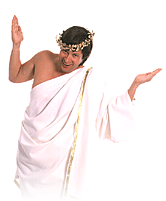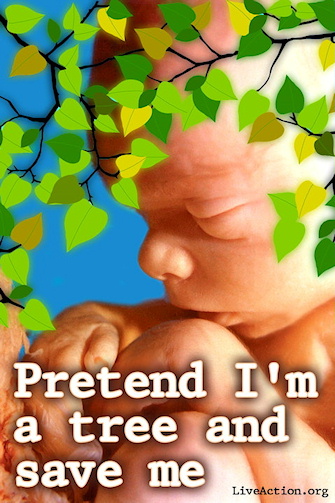He starts out by saying: "Unfortunately, when we enter the complex domain of translating the sacred liturgy into the vernacular we find that there have been different understandings and applications of “truth”, and not all of them have been splendid." He goes on to ask this question about the ICEL translation "Do these English words convey the Catholic doctrinal meaning that is embodied in the words of the Latin original authorized by the Church?" While recongnizing the good intentions he says that often the result was "mendacious banality, that is, a translation that tells lies in a rather dull way." (The old saying, "The road to hell is paved with good intentions" comes to mind here.)
1 example Bishop Elliot gives is the virtual elimination of the word grace from the text & in particular 7 of the collects. "This serious falsification" is how he describes what was done. But he sees the removal of the "essential Christian word "grace'" as only "a symptom of the deeper doctrinal malaise underlying the current ICEL texts." He says that it "is a kind of Pelagianism. What we do is what matters." OUCH!!!! Sad, but true. If you compare the Latin to the English, much of the emphasis is on put on us, & taken away from God where it should be & the Latin text intended it to be.
The bishop goes on to show how Marian doctrine came under attack by the use of dynamic equivalence as the philosophy behind the translation. "Here we find an amazing failure to comprehend a basic principle of christology and mariology: Marian adjectives are doctrinal, not poetic." "Striking examples of mendacious banality" is how he describes it. While it is understatement in some cases, like using blessed istead of most blessed, elsewhere "Marian phrases that convey doctrinal truths taught by the Church were simply removed."
Bishop Elliot goes on to point out the reason it is essentail that liturgical texts are accurately translated. "Another dimension of truth in translation is asking whether a text maintains the mystery or a sense of the sacred. In the East, mystery in worship is maintained largely by the iconostasis. In the West, the Latin language functioned as a kind of iconostasis of language. Coupled with the celebration of Mass ad orientem, the Roman Rite retained the sense of a holy mystery that the East maintained through the universal liturgical paradox of concealing so as to reveal. The truth of the mystery came to be carried in the Latin texts."
He goes on to point out that in the name of making things comprehensible (shades of Bishop Trautman) we are really giving into human control, something that "
mystery" does not allow for. He goes on to show how Liturgiam authenticam & directives from Vox Clara have freed us from this "obsession with communication, instant comprehension, or immediately accessible meaning, all of which destroy real meaning."He goes on to show how liturgy should & & can teach while retaining the mystery it must contain. Instead of pedagogy being the end all be all that they made it 35 + yrs ago, it must result in the Eucharistic liturgy being the "culmination" of "the divine mystery" and recieved as a "gift evoking a human response."
The Bishop goes on to deal with reasons for many of the objections out there that oppose the new translation. Instead of the language they defend, he says that the liturgical language must speak with "dignity, reverence, and graciousness" or "we risk losing an essentially Catholic way of how we relate to God, how we understand God and ourselves as persons." He goes on to say: "The loss of sacral language may be seen as a betrayal of the Second Vatican Council’s radiant vision of the liturgy." In other words, what they claim was done in the "Spirit of Vatican II" was anything but.
Another interesting point he makes for why some oppose the more accurate translation is that it "will remind them that they are not living up to the doctrinal and moral norms of the Church, norms they want to consider locked in a past they never wish to see again." They want the lie to allow them to deny the truth, to avoid obeying the truth, etc. It should be no surprize that they will attack. Instead of what they want they need to face the reality that what they support has actually "caused harm among Christ’s faithful."
The concluding section of the talk looks at redefining the debate in ethical terms. What was done nearly 40 years ago resulted in "the undermining of the truth of the mystery and above all as the creation of a dull mood that drains away the truth of Christian worship." The "ethic of strategic mistranslation enters a domain closely related to lying: stealing." However, as he points out, instead of trying to fix blame "it is important to say firmly and clearly, 'Never again!'"
"Now is the time to look forward and 'wait in joyful hope'". "Something better is emerging in this area of English liturgical language, a significant development that may also make it possible to face the wider challenges of an inevitable reform of the reform. Through the new translations, we hope to see something of the glory of the liturgy shine once more. May we recover the divine splendor of the truth, on the lips, in the minds, and in the hearts of a people worshipping the triune God 'in spirit and in truth'."
Before I add any final comments I must strongly recommend that you read the entire talk. I have tried , poorly I think, to summarize what he said. I had to leave out much that goes into greater depth & more clearly explains what he said because of the nature of this post. It wasn't to repeat verbatum everything he said, but to show some hilites to encourage you to read it & be better armed to deal with those who are opposing the new translation.
After reading this article, much of the reasons for the opposition have become clearer to me. Or should I say, some of the things I suspected have been confirmed. It does raise a question that I hate to ask but have to: "Why is Bishop Trautman (as well as some other bishops) so opposed to the changes?" This question pops up because Bishop Trautman uses the very same objections that those who want the lie are using. It makes me wonder if he is (they are) in the camp who wants to water down or even undermine the truths of the Catholic Church. I hate to suggest this, & hope I am wrong, but too much evidence points to the fact that what I suspect is true.
I have a book that has the parallel translation comparing the Latin to English, Italian, Spanish & 4 other languages. I am not an expert on Latin, & my Italian & Spanish are rusty but even so, the weaknesses of the English language translation are glaring. I would highly recommend checking out
The Roman Sacristan as he does an excellent job of camparing the Latin to the current English & giving his more accurate translation of the Latin. Fr. John Zuhlsdorf's
What Does The Prayer Really Say? is another site that often does a comparison.
When done right (including accurately translated if not done in Latin) the Novus Ordo Liturgy can be as beautiful as the older Tridentine or any of the Eastern litugies when they are done right. (& I have seen Tridentine liturgies just as badly done as some Novus Ordo liturgies.) When the Moto proprio allowing greater use of the Tridentine rite comes out I will welcome it. But I also look forward to the new translation coming out. It will cause a lot of people to call for more faithfulness by priests & bishops to the authentic teachings of the Catholic Church instead of the mix of heterodoxy & heresy that is out there much of the time. But in the end, as always, it will be up to each deacon, priest & bishop to do what he should to accurately present the truths of the Catholic Church. For almost 2000 yrs the Church has suffered at the hands of clergy & laity who have intentionally attacked these teachings, yet the Church has, & will continue to have a core group of those who are faithful to Jesus, the Church He established & the Vicar Jesus put in charge. In the end, no matter what Satan & those who cooperate with his attacks do to dim it, the divine splendor of the truth will shine forth!!!!!
(Photo: John Casamento, Episcopal ordination of Bishop Elliot 15 June 2007, St Patrick’s Cathedral, East Melbourne Australia, added 19 June 2007 1:41 am)
 In a post about 3 weeks ago I wrote that it looked like the race between the date of the release of the Motu Proprio allowing greater use of the "Tridentine" liturgy & the date that Fred Thompson would officially announce his candidacy for the Republican Presidential nominee. At the time the tentative date was 5 July. Well, with the news of a definite date for the Motu Proprio it looks like the race is on again. According to news reports it will be officially published on 7 July. Technically, the Motu Proprio has won as it has already been shown to about 15 bishops this past week. This meeting was presided over by Cardinal Tarcisio Bertone, Vatican secretary of state. Papa Benedetto also showed up to greet those in attendance & took about an hour to discuss its contents & the letter that will accompany it.
In a post about 3 weeks ago I wrote that it looked like the race between the date of the release of the Motu Proprio allowing greater use of the "Tridentine" liturgy & the date that Fred Thompson would officially announce his candidacy for the Republican Presidential nominee. At the time the tentative date was 5 July. Well, with the news of a definite date for the Motu Proprio it looks like the race is on again. According to news reports it will be officially published on 7 July. Technically, the Motu Proprio has won as it has already been shown to about 15 bishops this past week. This meeting was presided over by Cardinal Tarcisio Bertone, Vatican secretary of state. Papa Benedetto also showed up to greet those in attendance & took about an hour to discuss its contents & the letter that will accompany it.
 St. Thomas More was born in Londodn England on 7 February 1478. He was a friend of King Henry VIII, who made St. Thomas Lord Chancellor of England (2nd only to the King) in October 1529. When King Henry wanted to divorce his 1st wife, Catherine of Aragon, The Vatican ruled that the marriage was valid & couldn't be annuled, nor could Henry divorce her. Henry, rather than submit, declared himself head of the Church of England. (We can see the fruit of that in the way things are in the various branches of the Anglican Church today.)
St. Thomas More was born in Londodn England on 7 February 1478. He was a friend of King Henry VIII, who made St. Thomas Lord Chancellor of England (2nd only to the King) in October 1529. When King Henry wanted to divorce his 1st wife, Catherine of Aragon, The Vatican ruled that the marriage was valid & couldn't be annuled, nor could Henry divorce her. Henry, rather than submit, declared himself head of the Church of England. (We can see the fruit of that in the way things are in the various branches of the Anglican Church today.)

 Adoremus has a very interesting article on its website. It is taken frm the June 2007 issue of The Adoremus Bulletin. It was the text of an address given by Bishop Peter J. Elliot (auxilary of the Catholic Archdiocese of Melborne Australia) at the international conference, Sacrificium laudis: The Medina Years (1996-2002) in October 2005. Liturgical Translation: A Question of Truth looks at the original translation of the Novus Ordo into English by the International Commission for English in the Liturgy (ICEL). Rakes over the coals may be a better description.
Adoremus has a very interesting article on its website. It is taken frm the June 2007 issue of The Adoremus Bulletin. It was the text of an address given by Bishop Peter J. Elliot (auxilary of the Catholic Archdiocese of Melborne Australia) at the international conference, Sacrificium laudis: The Medina Years (1996-2002) in October 2005. Liturgical Translation: A Question of Truth looks at the original translation of the Novus Ordo into English by the International Commission for English in the Liturgy (ICEL). Rakes over the coals may be a better description.  You know that academia has taken a dive off the deep end when a quote from Dave Berry is deemed Politically Incorrect. According to a TownHall.com article by Fred Thompson (Banning Dave Berry) the head of Marquette University's philosophy department had the following quote removed from the office door of Ph.D. student Stuart Ditsler: "As Americans we must always remember that we all have a common enemy, an enemy that is dangerous, powerful and relentless. I refer, of course, to the federal government."
You know that academia has taken a dive off the deep end when a quote from Dave Berry is deemed Politically Incorrect. According to a TownHall.com article by Fred Thompson (Banning Dave Berry) the head of Marquette University's philosophy department had the following quote removed from the office door of Ph.D. student Stuart Ditsler: "As Americans we must always remember that we all have a common enemy, an enemy that is dangerous, powerful and relentless. I refer, of course, to the federal government." 

 This chart to the left shows (roughly) what makes up the cost of a gallon of gas. The markup by the retailer is not included as it varies from state to state. Also, some states have a minimum markup law that requires them to charge a minimum amount above their costs. (Check here for a full explanation of how the DOE figured this.)
This chart to the left shows (roughly) what makes up the cost of a gallon of gas. The markup by the retailer is not included as it varies from state to state. Also, some states have a minimum markup law that requires them to charge a minimum amount above their costs. (Check here for a full explanation of how the DOE figured this.) 









